In the aftermath of a job interview, many candidates find themselves grappling with the question: “Should you write a follow-up email after an interview?” The answer is a resounding yes. Sending a follow-up email is not just a courteous gesture; it’s a vital part of your job application process. This communication reinforces your interest in the position, demonstrates your professionalism, and keeps you in the forefront of the hiring manager’s mind.
The Importance of a Follow-Up Email
A follow-up email after an interview serves multiple purposes. It’s an opportunity to thank the interviewer for their time, which reflects your good manners and understanding of professional etiquette. Additionally, it lets you express your continued interest in the role and the company. This email also provides a chance to re-emphasize your qualifications and how they align with the job’s requirements.
Timing is Key
The timing of your follow-up email is crucial. Ideally, you should send it within 24 hours after the interview. This promptness shows your eagerness and commitment to the role while ensuring that your interview is still fresh in the interviewer’s mind.
Personalization Matters
Personalization goes a long way. Address the interviewer by their name and, if you’ve met with multiple people, consider sending individualized notes to each. Tailor each email to reflect specific discussions you had with each interviewer. This attention to detail shows that you were engaged in the conversation and valued the time spent.
Structuring Your Email
The structure of your follow-up email should be concise and to the point:
- Start with Gratitude: Begin with a statement of thanks for the interviewer’s time and the opportunity to learn more about the position and the company.
- Reiterate Interest: Clearly state your interest in the role, referencing specific aspects of the conversation that resonated with you.
- Highlight Qualifications: Briefly remind them of your qualifications and how they make you a suitable candidate for the position.

Professional Tone
Maintain a professional yet approachable tone throughout the email. Focus on positivity and your enthusiasm for the opportunity.
Proofread
Before hitting send, proofread your email meticulously. Any spelling or grammatical errors can significantly detract from the professionalism of your message.
The Follow-Up to the Follow-Up
If you haven’t received a response within the timeframe mentioned during the interview, it’s appropriate to send another polite email inquiring about the status of your application.
Sample Follow-Up Email
Here’s an example to guide you:
Dear [Interviewer’s Name],
Thank you for taking the time to meet with me yesterday regarding the [Job Title] position. I enjoyed our conversation about [specific topic discussed], and I’m excited about the prospect of bringing my [specific skills or experiences] to [Company Name].
I am particularly enthusiastic about [aspect of the job or project mentioned in the interview], and I am confident that my background in [specific relevant experience] will be beneficial to your team.
I look forward to the possibility of contributing to [Company Name] and appreciate the opportunity to further discuss how I can add value to your team.
Thank you again for considering my application. I am eager to hear from you regarding the next steps in the hiring process.
Best regards, [Your Name]
Looking to the Future
To sum up, should you write a follow-up email after an interview? Absolutely. It’s an essential step that showcases your professionalism, reaffirms your interest in the position, and potentially sets you apart from other candidates. A well-crafted follow-up email is more than just a formality; it’s a strategic move in your job application process.






